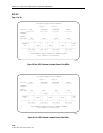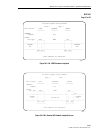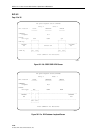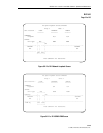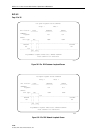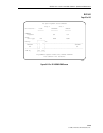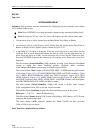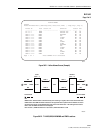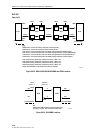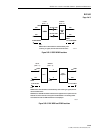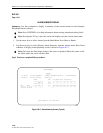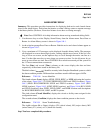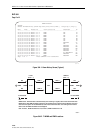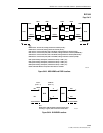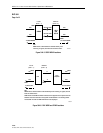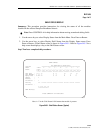
ADCP-61-471 • Issue 4 • June 2000 • Section 2: Operation and Maintenance
2-148
© 2000, ADC Telecommunications, Inc.
DLP-542
Page 3 of 4
11375-B
NEND
NEND
FEND
HLXC
HLXR
FEND
TO NETWORK/MUX
TO CUSTOMER
LOOP 2
LOOP 1
LOOP 2
LOOP 1
LOOP 1
LOOP 2
HRX1
XCVR
CRP1
CRP1
XCVR
XCVR
RRP1
RRP1
XCVR
HRX2
XCVR
CRP2
CRP2
XCVR
XCVR
RRP2
RRP2
XCVR
KEY
NEND means "at the HLXC, looking toward the customer (HLXR)."
FEND means "at the HLXR, looking toward the network (HLXC)."
CRP1 means "at the central office side of the HRX1, looking toward the network (HLXC)."
RRP1 means "at the remote (CPE) side of the HRX1, looking toward the customer (HRX2/HLXR)."
CRP2 means "at the central office side of the HRX2, looking toward the network (HRX1/HLXC)."
RRP2 means "at the remote (CPE) side of the HRX2, looking toward the customer (HLXR)."
CRP1 (Alarm History, PM Reports, and Status screens) = LINE 1 (TL1)
RRP1 (Alarm History, PM Reports, and Status screens) = LINE 2 (TL1)
CRP2 (Alarm History, PM Reports, and Status screens) = LINE 3 (TL1)
RRP2 (Alarm History, PM Reports, and Status screens) = LINE 4 (TL1)
NOTE: CRP2 and RRP2 are not present when there is no HRX2.
Figure 542-3. HDSL HLXC/HRX/HLXR NEND and FEND Locations
KEY
NEND means "PM information collected directly from
incoming T1 signals, both at local and remote sites".
10455-A
NEND
T1
T1
DLX DSX
DS1
DS1
DS1
DS1
NEND
TO NETWORK TO CUSTOMER
LOCAL
(SITE = -1)
REMOTE
(SITE = -2)
Figure 542-4. DLX NEND Locations



